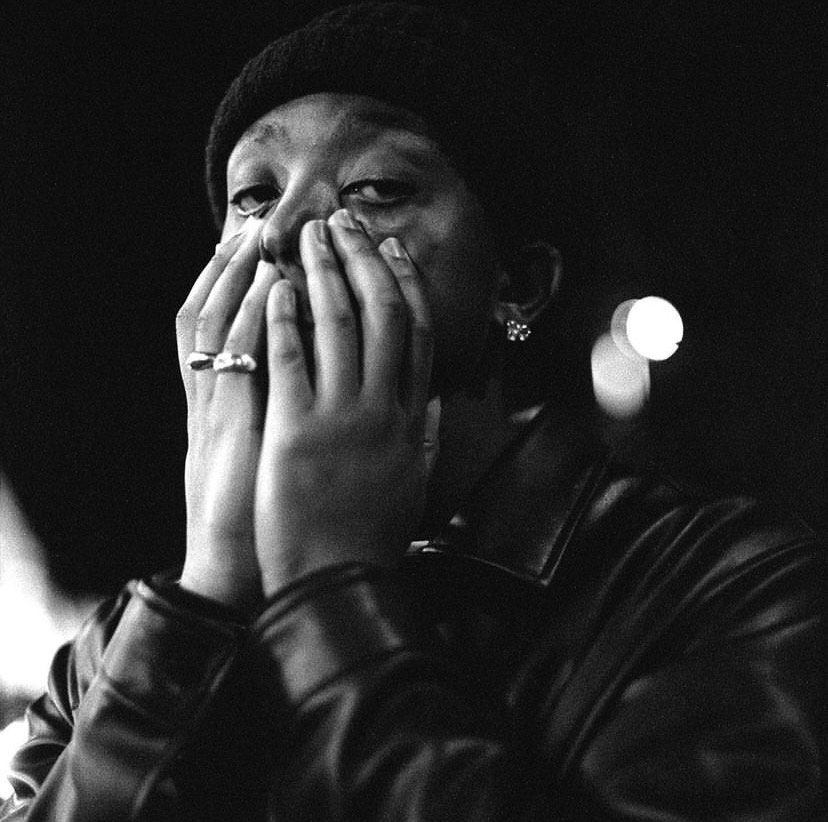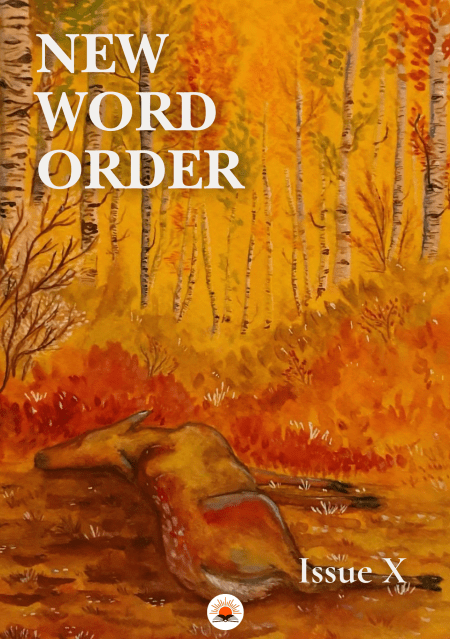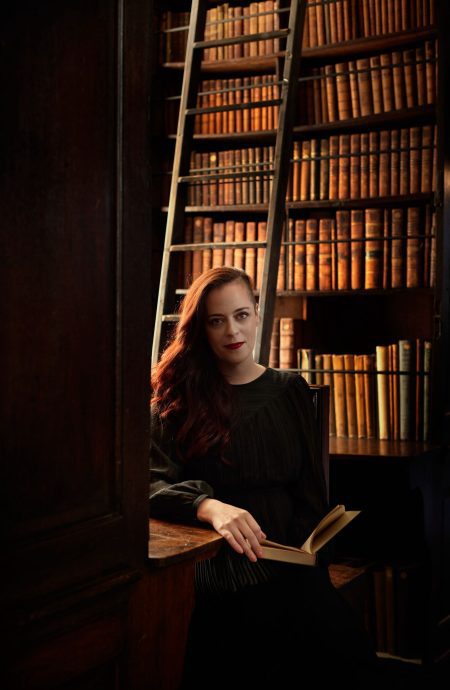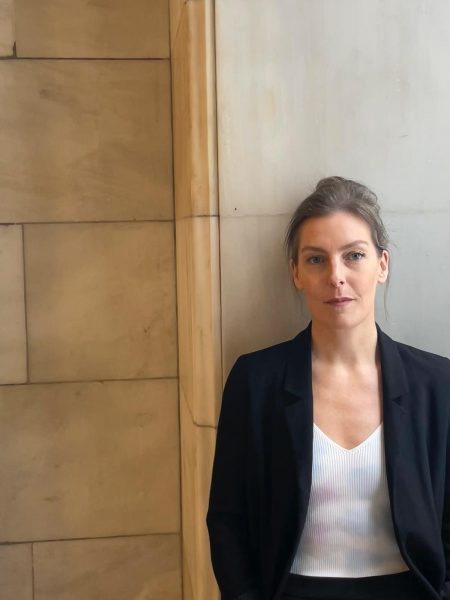Fortúne Igiebor has established himself in the Irish hip-hop scene as a well-rounded, outlandish vocalist/producer. He has been immersed in the underground setting from as early as 2018, when he released his first official single “So Famous II”. Since then, Igiebor has taken on a gritty and eccentric approach in tracks such as “NIGHTFALL” and “THE PRAYER”. Having sold out his debut headline at the Grand Social, he delivers the message that a new era is upon us. With his subsequent show due on the 27th of January 2023, Igiebor presents the new and exciting single “NEYBURS,” granting his listeners a kick-start to what he calls “A New Rage”.
This interview features an exclusive commentary from Igiebor on what it means to be an artist – its difficulties, highlights, and the journey of growth and understanding that comes with it.
Conducted and Edited by Hana Duran.
Hi Fortúne, we appreciate you agreeing to be part of this interview for the fifth issue of UCD’s ‘New Word Order’. Tell me, as an artist, what is the biggest part of your creative vision and why do you think it’s important? In other words, what is it you feel you have to offer?
I feel like I’ve got a sense of relatability to offer to the table. And I think when you take something like that, someone who you can relate to so easily, and you see them blazing this new trail that’s uncharted and kind of outlandish, it’s a bit of a morale boost and confidence boost. If you find an insane amount of difference to yourself in other people, there’s still so much to offer from that alone, so that’s really the story I’m trying to provoke.
And how has that vision evolved over time, or how do you think it will continue to?
It’s creating a story for itself that I didn’t imagine; cause all I ever really do is show up on the day of exploring my outlandishness for other people. More time, I’m not even focused on spreading any type of message, but seeing people see me do that, and take that and apply it to their own element is interesting. It’s interesting to see how confidence can do so much for so many people. I hope that answered your question.
It did, yes. So you think it’s about creating a space for art to take its own form?
And energy, yeah. Exactly.
And what does success mean to you, then?
I feel like success is really just a thing that we live for. Whether it just be waking up being someone’s form of success, if somebody can be motivated enough to do that, then they have something to believe in. I mean when you look at everything that we do, between college, careers, and dreams, it all comes down to one thing which is being successful and making something of yourself from it. So I feel like success is … it’s something that people believe in and use as a way of life without even realising it.
So you’d say it’s subjective rather than objective?
Yeah, exactly.
And what have been your biggest motivators when it comes to what you do?
Probably seeing the effect that we’ve had on the people around us. Because music is something that is so … explosive … in a sense of showing yourself to so many people with the aim of doubling and tripling in terms of the eyes and the viewers. When you start to notice more and more people recognise you for something that you believe in it becomes an interesting arc in someone’s character.
Okay, talk to me a bit about your process – what’s the starting point for a project and how do you give space for it to develop?
I mean I feel like the first step is really just being open to making something new. For myself, specifically, it’s always me telling myself that I have to do it one way. And I tried that, and it doesn’t work. And then I try something with an open mind – no plan, no sense of expectancy, I just go into it – and usually that’s how some of my more meaningful projects come to life. It’s just about having an open mind to the day, pretty much, or the process at hand.
And when you say “meaningful project”, what comes to mind? What have been your greatest achievements, or what have you had the most satisfaction in producing?
Producing music that has, like, helped. And it’s so funny because the songs that have been the most successful have been the most successful in their own light but, specifically, the songs where writing them was me helping myself get out of a bad place, or letting myself enjoy a good place—those songs are like timepieces because of the way I’m writing and how vulnerable I can come on in the production of them. Listening to those songs and seeing the emotion they can put on other people and on me is nice, because you’re making something special at that stage.
So how important is collaboration in an industry like this? What does working with other artists teach you?
I think in an industry like music it’s all about networking. Whether you like it or not you’re always going to need somebody who knows something you don’t. With collaborations … they do so much more for people than they understand. Working with other people really just teaches you how to handle yourself in different scenarios because you’re dealing with so many personalities—you’re dealing with humble people, you’re dealing with cocky people, you’re dealing with the best and the worst. There are moments where you have to be somewhat cocky, somewhat humble, and just be able to handle situations with different types of scenarios. Collaborating really helps you get a grip on that.
That’s definitely common among many industries. So your debut headline show was this June, and you recently announced your second for January 2023. What has putting your work forward in such a public and connected way done for you?
It’s given me a sense of belief in the idea that the only time somebody cancels themselves out for an opportunity, in terms of their dream, is when they don’t try. Because the headline show was something I was so so so scared to do and, in January, I told my photographer that I wouldn’t look at doing that until I was maybe twenty-two years old. I got offered the headline on a whim, and I took it and just gave it everything I had, and we ended up selling it out and shutting it down. So June 20th just keeps on reminding me that if anybody puts their head to anything and gives it 100% they’re going to do so great, because I didn’t think I did—or that I would.
So it remains a motivator for you as an artist?
Yeah, exactly.
And how does perfectionism impact your work?
With perfection … I think it opens a really dangerous amount of procrastination into the process. Because you’ll give yourself so much time to “perfect” something and it’s, like, how can anybody know when something is perfect and flawless without taking the opinion of billions and billions and billions of people? Writers, with their own minds, could have a say on something that half the world thinks is a ten out of ten—they can say “no, it’s an eight out of ten because of XYZ”. So I feel like perfectionism is something that artists need to learn to use to an advantage but keep at a boundary, because it’s a useful tool until it’s overused, you know? It just wastes time and kills art.
So do you ever get a sense of imposter syndrome?
All the time.
And do you think it’s part of being an artist?
When it comes to a person, an artist is a brand. So when you’re trying to make something of yourself from your art you’re keeping in mind that you have a brand to show to people as well. And then it gets into the thing of promoting yourself the right or wrong way. You change your ways to suit a demographic, and people – artists – lose themselves a thousand times over before any type of success comes. It’s something that people might not know the correct term for, but anybody who writes something and puts that to the world has dealt with it, whether to a small or big degree. I’m sure you can agree.
For sure, it’s a huge part of it. And if there’s anything you could tell your past self and your future self, what would it be?
So I would tell my past self to keep on being different. I would tell my past self to keep on being different because I tried everything, and I lost myself so many times in the way that I just described. And I’m just lucky that I had a group of people around me to help me, kind of, put the fire out. And with my future self, I would say keep on finding the flame. Because there’s a momentum that I’ve set right now. I used to have to convince myself to be happy with it, but looking at what I’ve done for myself, by myself, and with said collaborations, I think I’ve definitely got a good thing going on. And I would just tell my future self to keep on keeping on.
So on losing yourself—what do you think is the way to finding yourself as an artist again, as someone who is being true to themselves in what they are trying to deliver to other people?
I think being open to beginning again is a great start. Because, speaking personally, I love the story of a Phoenix—a bird that dies and rises back up from its ashes as its new form. Giving yourself enough time to fuck something up and start again with a whole new set of eyes and energy … I think it’s necessary. Because every season changes and the same ones come, but next year’s November is going to be different to November right now. So I feel like being open to change and adapting that mindset can help somebody overcome that type of thing.
Yeah, it’s part of it. For sure. And what about advice to other aspiring creatives?
I always say keep yourself surrounded by artists. I always say have something that you believe in that can make you write. And I would say don’t look to be understood just look to be appreciated. Because what Hana writes might not be appreciated by Fortúne supporters, but it’s a thing where you have your art, and if I can read something of yours and it can do something to me and I can appreciate that, then that’s what art is all about—it’s just giving somebody that sense of … artistry. Like, giving somebody something to read and get inspired by, you know?
Yeah. I feel that, in ways, art is composed of other art. We see so many cycles and patterns in the process, and it’s like a shared thing no matter what industry you’re in.
I think it all boils down to the saying “imitation is the sincerest form of flattery”. And I feel like if somebody heard this or read this tomorrow and went and did the same thing, and you knew it was inspired by something you did—it’s keeping the art going. It’s knowing you can go to sleep that day and you did something to keep art alive. Like that’s an insane concept.
Yes, definitely. It’s a cycle. And so what expectations do you have for yourself in future, or what can others expect of you?
I think just taking the movement that we started and bringing it to new heights. We kind of had a look at ourselves, me and the team, and understood what we had started building. And now we’ve got a name for ourselves in the country and our brand is starting to come to life, so I feel like in the next few years we’re just going to see that story that we’re writing, and that brand, multiply and triple. It’s going to be at a worldwide scale, and things like these – these articles – are going to be like diamonds in the dust. I was thinking of that on the way up; I’m just excited for this stuff to just grow old like gold, you know?
If you could have a motto for that brand you’re building, what would it be? What captures it all in one phrase?
That’s such a good question … a motto?
“A New Rage.”
See, this started off as just something to promote the new headline, but since we’ve made that announcement and we started pushing that idea, people have really attached themselves to it. I think it’s something exciting, something that nobody can expect because you can kind of tell when somebody’s about to imitate something in a very similar way, but with this I just feel like there’s a sense of uncertainty—that it’s exciting for people to see. So I think year after year, gig after gig, it’s always going to be A New Rage. Because as soon as it hits London it’s a New Rage, when it hits Germany, it’s a New Rage, and that’s gonna be who we are—it’s a thing of passing a torch and lighting the flame.
Yeah, there’s a really common theme here of growth and cycles—things carrying on from what they were.
Yeah, yeah, going from one thing to another.
Exactly, I think that’s how things spread.
Revolution, isn’t it?
Revolution, exactly. Finally, are there any rising creatives you’d like to give a special mention to for our readers to check out?
I would like to give a special, special shout-out to Danzi, an up-and-coming singer and rapper. I would like to give a shout-out to When The Beat is Bad (Jessica Fox Richardson), an up-and-coming producer working between London and Dublin right now. I’d like to give a shoutout to KidKuba, LexiMae, Eluna, and Kwangz—a beautiful mix of singers, vocalists, and artists who have amazing projects on the way and are living, breathing examples that “A New Rage” is real.
Check out Fortúne Igiebor and other mentioned artists on Instagram here:
Cover image photo credits: Marcelline R. (website) – @m.ll.r on Instagram



